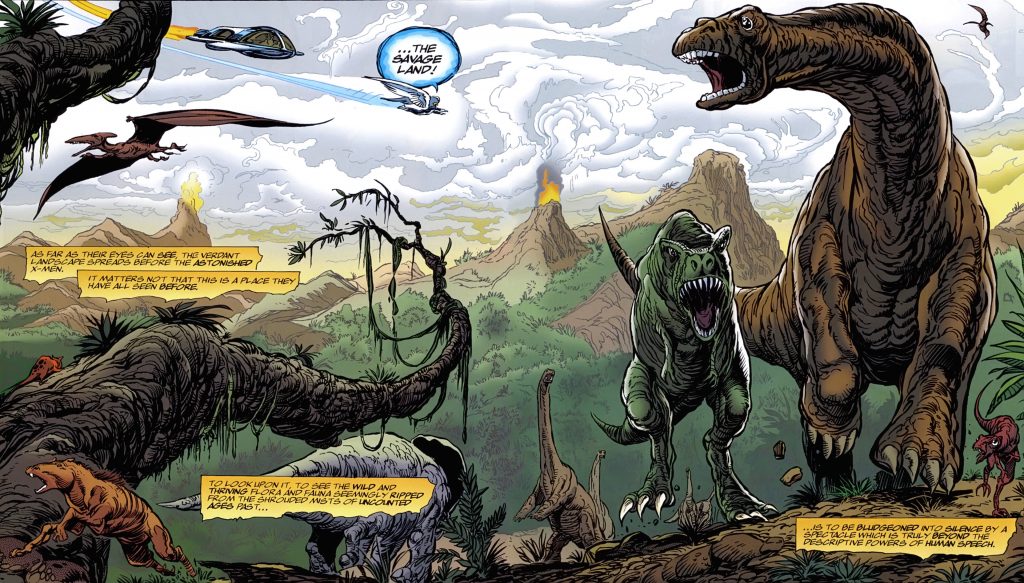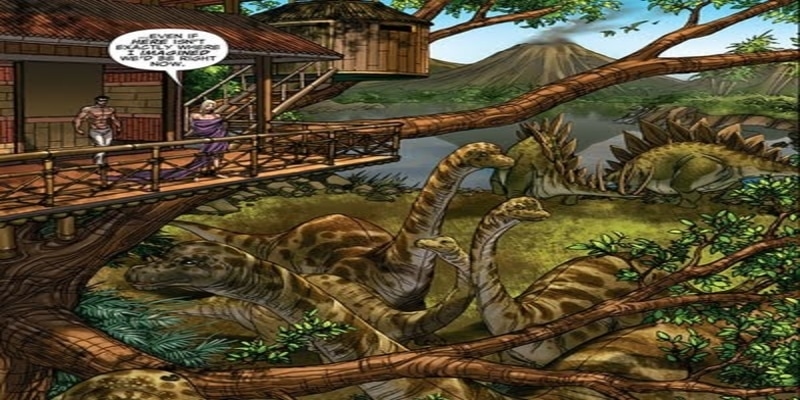Savage Land of The Marvel Was Real, Suggested by Scientist!
Scientists suggest that Marvel’s Savage Land was quite a revelation revealed. CNN reports that some researchers have discovered that there’s evidence of ancient rainforests found in Antarctica. That might mean that about 90 million years ago, the continent is a swampy rainforest rather than what we see today.
What Savage Land of Marvel has to Tell?

Marvel’s Savage Land may be a prehistoric land hidden in Antarctica. During the Triassic period, the Nuwali, an alien race, made the kingdom for The Beyonders within the comics continuity. But, Ka-Zar and, the other inhabitants like him were probably not around during the coinciding period on our Earth. Employing a drill to slice the seafloor, researchers discovered that the sediment collected contained forest soil, pollen, spores, and root systems. From there, they found that the hotter conditions during the time of the dinosaurs helped facilitate the balmy climate.
What Researchers have to say About it?

“The preservation of this 90-million-year-old forest is phenomenal but even more surprising is that the world it reveals,” Tina van de Flierdt, co-author of the study said. “Even during the glooming months, marshy temperate rainforests were inclined to grow near the South Pole, exhibiting a warmer climate than we expected.” Further inspection told the team that the forests were just like those found in New Zealand’s South Island today, which means rainfall and green stretching all around.
MCU Phase 4 & 5 Quiz
Nature Adapts itself According to it’s Need!

It’s truly wild to consider that such a massive expanse was home to a range of creatures previously. But, time changes, and therefore the Earth molds accordingly. Even more fascinating is that a warming effect produced by CO2 created a veritable greenhouse that allowed the forests to survive without sunlight for as long as four months at a time. “Instantly, we know that there could be four consecutive months without sunlight within the Cretaceous. But because the climate around the South Pole was nevertheless temperate, the CO2 concentration was so high, without ice masses,” a co-author of the study and MARUM research facility explained.
Take A Look at the Tweet:
The Savage Land, one of the top 10 most-frequented settings in the run, has been read as a metaphor for the subconscious. It’s a place for the X-Men to reconnect with themselves, a land of revelation and refocusing…also dinosaurs. 1/3 #xmen pic.twitter.com/Hm04OIJ2TQ
— The Claremont Run (@ClaremontRun) March 13, 2020





